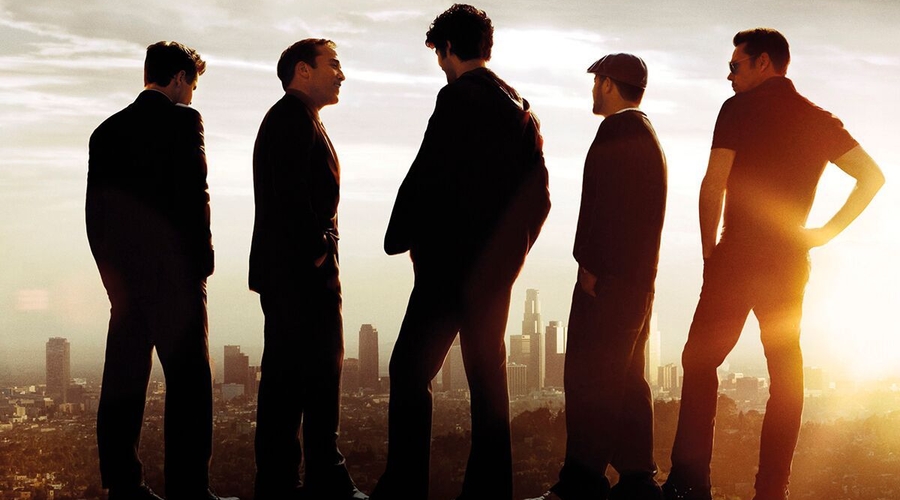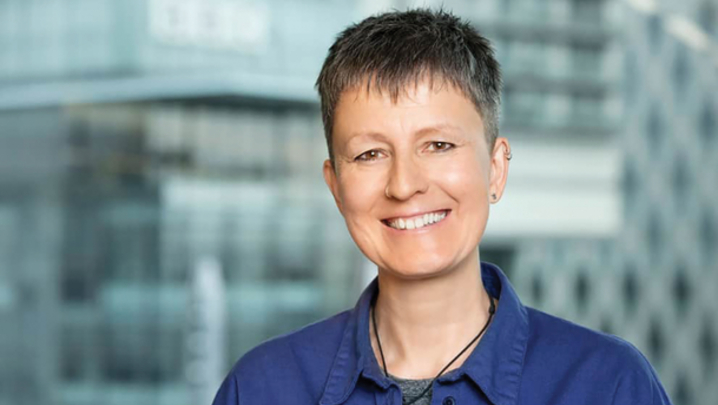On both sides of the Atlantic, talent agencies are increasing their role in content production. Simon Shaps investigates
This begins with a true story. I have withheld the real names, as I still want to do a little business, and certainly have lunch now and again, in LA. Some years ago, I went to see some senior executives at one of the major US talent agencies. We chatted amiably for the first 10 minutes, as you do. The normal stuff. “How long are you in town?” “I love London… you must know my friend Jack. He lives in Liverpool. That’s kinda near, isn’t it?” “The guy who runs NBC is going to be toast by Christmas.”
In this sort of conversation, any show you say you liked somehow leads back to them. It was one of their shows – their talent, their idea and their pitch. And, certainly, their 10% of gross.
Another executive arrived late, carrying a giant bowl of popcorn and started to hoover it up. If the meeting hadn’t happened some time before Entourage had aired, I would have said they got their routine straight from the TV series. It was, of course, the other way round. I was the guy from Granada and the agency wanted our business; they wanted to induct us into the mysteries of Hollywood.
I mentioned that I had come straight from a pitch meeting at one of the networks. They asked a bit about the show we were selling, but were much more interested in who we had pitched it to. I gave them the name.
“Don’t worry. He’s one of our clients. Leave it to us”
The popcorn eater, who was already scooping up the last dregs, said: “Don’t worry. He’s one of our clients. Leave it to us.” Not content with that, they ended the meeting by saying that they would call me every week, to persuade me that they should represent the company. They did exactly that for a year and then moved on.
There may be nothing remarkable about this experience, but it has certainly stuck with me. Today, as we contemplate a television landscape in which seismic change is the norm, the US agencies, and their much smaller counterparts in the UK, are on the march.
Like the arrival of the streamers, the super-agencies, with their fingers in every pie, threaten to disrupt the established order.
One of the most controversial figures in the development of the US super-agencies, and a founder of CAA, has just published a memoir, Who is Michael Ovitz?, which was reviewed in the last issue of Television.
Ovitz was clearly touched with genius, but the book is a curious read, a mea culpa with barely an apology in sight. Without great fanfare, he writes that, at a certain point – though it is not entirely clear when that point was – he was “able to put executives in place at the studios and then sell our projects to them, controlling both supply and demand”.
If there is a holy grail in television, it is the dream of vertical integration. This is the ability to capture production and broadcast, the supply of content and the gatekeepers who control demand – the entire value chain – within one organisation. Ovitz, like the popcorn eater, had a variant of this idea in mind.
Unable to own platforms, he wanted to represent all the talent, from directors and producers to writers and actors, together with a sprinkling of TV network and studio executives.
With restrictions in the US on agencies moving into domestic production, CAA, WME, ICM, UTA – all of those three-letter acronyms, with their tough consonants – have, nonetheless, sought to grab more of the TV value chain.
Two of the most talked-about shows of recent years, Killing Eve and The Night Manager, received significant investment from Endeavour Content, described as the content division of WME and IMG. (IMG was acquired by WME at the end of 2013.)
In the case of Killing Eve, the combination of broadcast on BBC America, tax breaks and investment against distribution from Endeavour Content were enough to green-light the show. BBC One’s money came in later.
When Chris Rice, co-president of Endeavour Content, was interviewed by Deadline in May, he said he did not want to produce. Instead, he wanted to provide “support” across sales, financing and business affairs, and offer producers “whatever they need to operate their business in the most effective way”.
Nearly 90% of all scripted TV series are packaged by talent agencies
The statistics about the power of the major talent agencies in the US are already jaw-dropping. According to figures collected by the Writers Guild of America, nearly 90% of all scripted TV series are packaged by talent agencies, with WME and CAA accounting for nearly 80% of shows between them. The combination of access to lots of top-tier talent and access to capital goes a very long way.
Apple’s first wave of original commissions in the US is said to be almost entirely multimillion-pound packages from the major talent agencies.
Outside of the US, the agencies are less constrained. For a while, it seemed that Endeavour Content was one of the favourites to buy Endemol Shine but, in the end, the interest seemed to fizzle out. Then, in October, it announced it was backing a start-up run by Simon Maxwell, outgoing head of international drama at Channel 4.
In March, UK talent agencies United Agents and Casarotto teamed up with US-based Anonymous Content, producer of True Detective and the Oscar-winning Spotlight, to launch a production company called Chapter One.
But the most conspicuous move into production by a UK talent agency was Curtis Brown’s decision to set up Cuba, which received investment from BBC Worldwide. Cuba’s 2018 series McMafia certainly raised its profile as an emerging producer and is returning for a second run.
However, privately, some independent producers question the relationship between Curtis Brown’s role as a talent agency and Cuba’s activities as a producer. Before Cuba was set up, Curtis Brown could be said to have had a simple mission: to negotiate the best, most lucrative deals for its actors, writers and directors to work on the best shows, and make sure its authors landed the best deals for their books.
With its own production arm to feed, that conversation has become, at best, more complicated. Can there be an arm’s length negotiation between two parts of a company – the talent agency and the production company – that sit under the same roof?
As UK talent agencies weigh up the pros and cons of following Curtis Brown into production, it seems that there will soon be another chapter in the talent agency story. At least one of the UK’s super-indies is currently looking hard at investing in an agency.
At its most extreme, this convergence of talent agencies and production businesses poses a clear threat. Unchecked, such companies could have a stranglehold on all the elements that are needed to create a hit drama: the strongest material, whether books or original ideas; the best scriptwriters, directors and key on-screen talent; the most seasoned producers.
At that point, the balance of power between buyers and sellers changes. The seller holds all the cards.
The power of the mega-agencies is there for all to see
In the US, the power of the mega-agencies is there for all to see. Setting up companies such as Endeavour Content and investing in production businesses outside the US only strengthens their position.
The Writers Guild of America keeps a watchful eye on this activity on behalf of its members, the thousands of writers employed across hundreds of US TV series. It has been looking to update its long-standing agreement with the Association of Talent Agents, focusing on areas where it believes there are conflicts of interest.
In the meantime, UK agencies, casting an envious glance at the scale and influence of their US counterparts, are much less constrained by the talent unions.
None of this may matter if the best ideas win through in the end and the talent is properly rewarded. But the UK’s ever-growing number of independent drama producers – perhaps we should start calling them “non-aligned” producers – should probably not be so blasé about it.
They may be forgiven for wondering if the increasing power, resources and involvement in production of the super-agencies will shut them out, at precisely the moment that the streamers are offering greater opportunities than ever before.
Simon Shaps is the founder of Simon Shaps Ltd. He also works as a TV and film consultant for the literary agency Georgina Capel Associates.







